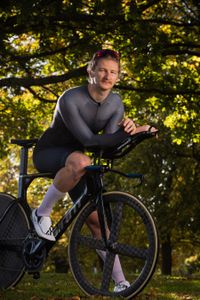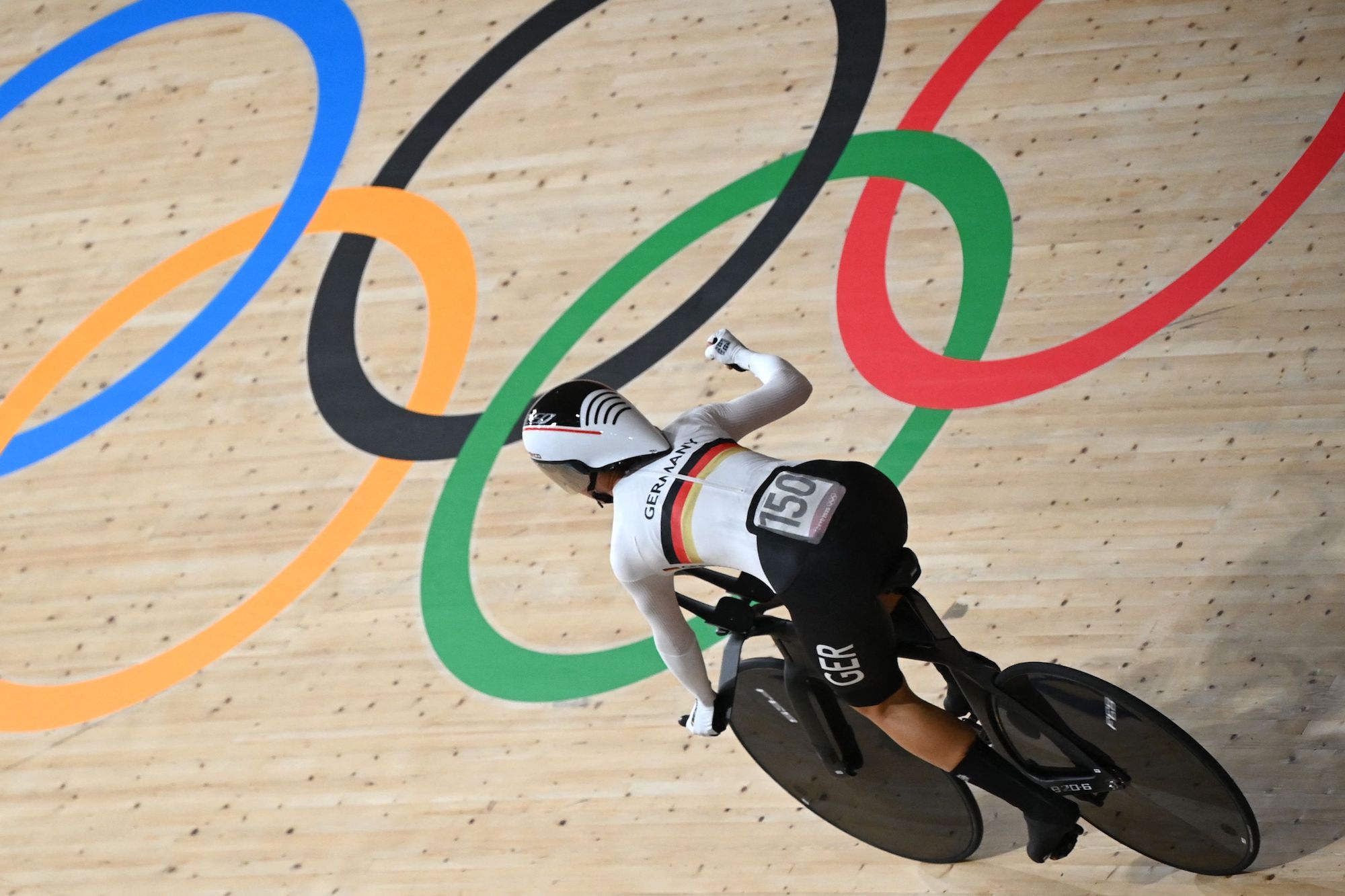Kit, temperatures, and practice - How records fell on the opening day of Tokyo 2020 Olympics track cycling
With team pursuit world records falling in the first session, we asked Aerocoach expert Xavier Disley why


The latest race content, interviews, features, reviews and expert buying guides, direct to your inbox!
You are now subscribed
Your newsletter sign-up was successful
As the Tokyo 2020 Olympics track events got underway, we saw some absolutely rapid times set in the team pursuit, as riders stepped up for the initial qualifying round.
Despite it being very early in the competition, Monday (August 2) saw riders crushing their previous fastest times, as the German women set a new world record, with Team GB and the USA also going faster than the previous record.
While it has been five years since the last Olympics in Rio, where the British team set the fastest time, improved fitness alone does not explain the three-second improvement laid down by the German team.
Cycling Weekly asked aerodynamic expert Xavier Disley for his thoughts on the opening day of racing.
Disley, head of aero equipment company Aerocoach, does plenty of his own research into the marginal gains that help track cyclists, with a number of nations using his equipment, particularly the Vorzug handlebars and the £950 Aten track chainring.
A number of factors impact the times during the Olympic track events, most notably environmental conditions, the kit, and practice.
For the environment, conditions in Tokyo are hot, and hot air is less dense than cold, which means riders cut through the air quicker - the higher the temperature, the faster the times.
The latest race content, interviews, features, reviews and expert buying guides, direct to your inbox!
“Times are very quick for qualifying,” Disley said, “But the conditions aren’t incredibly hot like we can expect for later on.
“Only a couple of men’s teams set PBs [personal bests] - the women’s was more dramatic, especially from Germany and also France, who went much faster than ever before.”
“The ability to deal with the very tight turns will favour the more well-drilled teams - you can see there were a few wayward changeovers from some teams.
“There were a lot of breakups, with teams dropping their second or third riders towards the end of rides, as well as two teams (Italy’s men and USA women), who had mid-pack pull-outs, indicating that everyone is risking everything to go as fast as possible.”
The results from the women’s qualifying round at the Izu Velodrome was somewhat of a surprise, with Germany going fastest with a time of 4-07.307, followed by reigning Olympic champions Team GB with a time of 4-09.022, then the United States, 4-10.118 - all three teams beating the previous world record of 4-10.236.
But in the men’s event, times were still rapid, but not quite touching the WR pace - Denmark qualified fastest with a new Olympic record of 3-45.014, followed by Italy with a 3-45.895 (which was also an Olympic record). This is compared with the existing world record of 3-44.672, set by Denmark during the 2020 World Championships in Berlin.
All of these times were also set with just one team on the track during the qualifying round, but things will get much quicker into the next round as teams go head-to-head on opposite sides of the track.
In previous years, teams have used the Olympics to debut their new faster innovations, from new bikes to skinsuits, but this year is slightly different due to a UCI rule change.
Instead nations now have to have already used their equipment in competition, like Team GB’s striking and unusual Hope bikes, first revealed in 2019.
But this could be the first time all the improvements have been brought together, according to Disley.
Olympic cycling disciplines: Madison / team pursuit / omnium / track sprint / Keirin / team sprint
Disley said: “In terms of equipment, given the UCI have regulated things so you can’t turn up to the Olympics with completely brand new set-ups, there isn’t as much race-day razzmatazz as we’ve seen in the past.
“Even though the equipment isn’t all brand new, it can sometimes be the first time it’s all been used together, in competition, rather than having had a couple of riders on each time test out the best bits of kit in previous races, so there’s a compound improvement there as every team riders gets the upgrades.”
We have already seen some absolutely blistering times already, but with the potential for higher temperatures, more dialled performances as the nerves settle, and two teams racing together on the track, more world records may yet still fall.
Alex Ballinger is editor of BikeBiz magazine, the leading publication for the UK cycle industry, and is the former digital news editor for CyclingWeekly.com. After gaining experience in local newsrooms, national newspapers and in digital journalism, Alex found his calling in cycling, first as a reporter, then as news editor responsible for Cycling Weekly's online news output, and now as the editor of BikeBiz. Since pro cycling first captured his heart during the 2010 Tour de France (specifically the Contador-Schleck battle) Alex covered three Tours de France, multiple editions of the Tour of Britain, and the World Championships, while both writing and video presenting for Cycling Weekly. He also specialises in fitness writing, often throwing himself into the deep end to help readers improve their own power numbers. Away from the desk, Alex can be found racing time trials, riding BMX and mountain bikes, or exploring off-road on his gravel bike. He’s also an avid gamer, and can usually be found buried in an eclectic selection of books.
